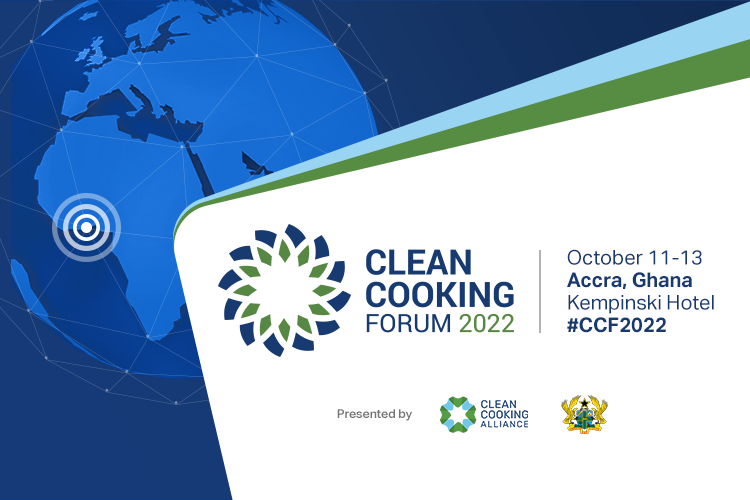
- Date
- 7th October 2022
- Categories
- General
Hosted by the Clean Cooking Alliance and the Government of Ghana, with support from MECS, the Clean Cooking Forum 2022 starts in just over 1 week! Taking place October 11-13 in Accra, the clean cooking ecosystem’s flagship event will convene global partners to accelerate access to clean cooking. Register for virtual participation here.
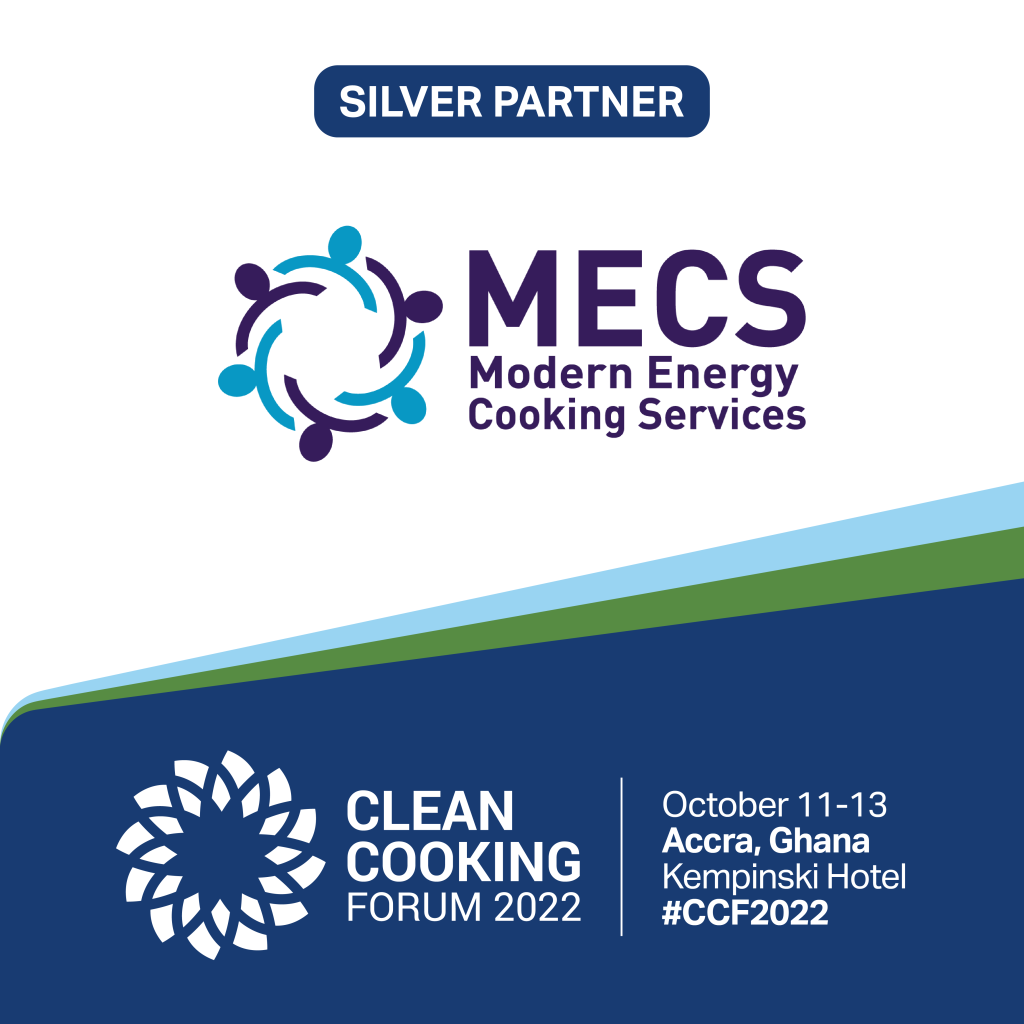
MECS will be championing the importance of electric cooking as a viable, cost effective and modern energy cooking solution, and will be hosting a range of activities at the Forum, including:
- Live eCooking demonstrations, pop-up talks and eCooking company product demonstrations which will be taking place at the booth co-hosted by MECS and Energising Development (EnDev) (Innovation Expo);
- A MECS-led workshop on ‘Modern Energy Cooking Services: Corporate and Local SME Collaboration on eCooking’. 13 October, 3:30-5:00 (Kempinski Hotel).
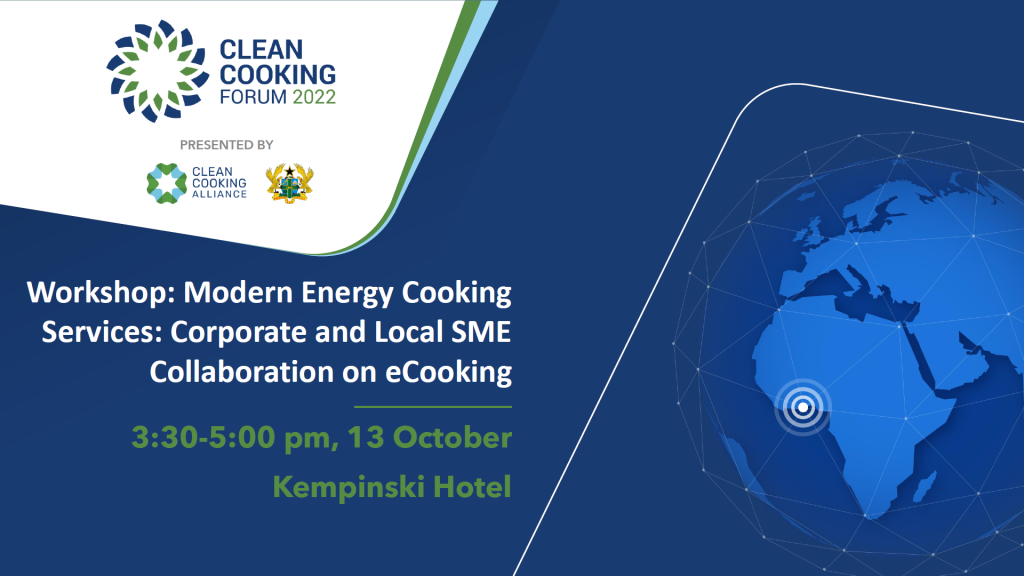
This workshop will explore opportunities and challenges related to collaboration between large corporates and small and medium sized companies in the electric cooking sector, and how these collaborations might best be facilitated. If you are interested in attending this workshop, please email Nick Rousseau. Please set out who you are, your organization and explain your interest in the topic. Numbers will be limited so we cannot guarantee everyone will be able to join.
MECS is also presenting at the following Forum sessions (virtual participation is available for all these sessions – please register to participate virtually):
- ‘There Is No Food Security Without Clean Cooking’. 11 October, 11:15-12:15.

As governments, donors and organizations struggle to respond to a global hunger crisis of unprecedented proportions, changing the way people cook is rarely acknowledged as the vital solution it is. In the past two years, the impacts of climate change, COVID-19 and global conflicts have more than doubled the number of people facing acute food insecurity to 345 million in 82 countries today. Without drastic global food system reform, as many as 80 million more people could face hunger by 2050, especially in Africa, south Asia and central America.
Cooking is an integral part of the food system – most obviously impacting consumption and nutrition – but as a major driver of climate change and land degradation, it also has a significant impact on food production.
This session will discuss the complexity of the global food crisis, explore the interconnections between clean cooking and efforts towards a sustainable food system, and share lessons from holistic regenerative agriculture approaches and institutional cooking efforts.
- ‘Scaling Modern Power Infrastructure With Electric Cooking’. 11 October, 1:30-2:30.
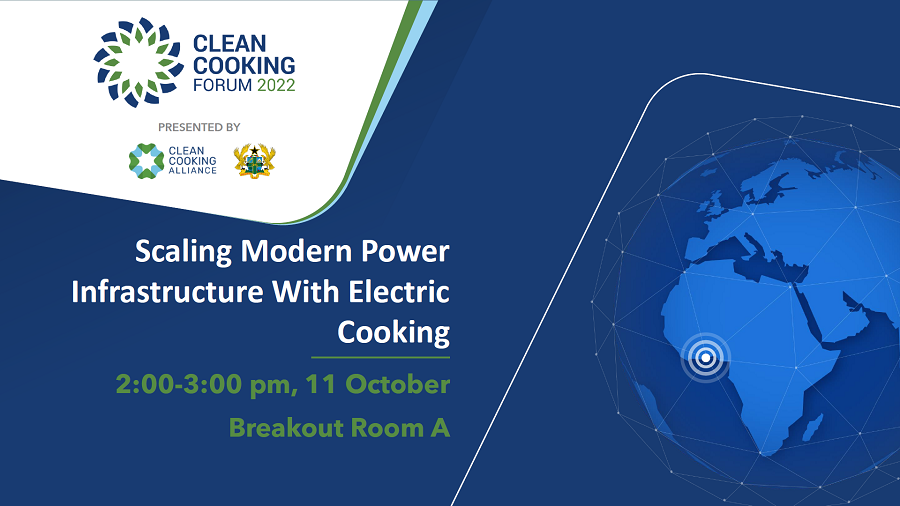
Electric cooking is an essential part of the solution to deliver modern power infrastructure and access to energy. To maximize this potential, clean cooking needs to be integrated into national energy planning; bringing together stakeholders to ensure aligned policies and tariffs, appropriate household energy infrastructure and accessible products.
As a potential affordable demand solution for households, electric cooking can support the financial feasibility of power generation and utilities as they strengthen and expand. This can improve the investment case for electricity infrastructure at the same time as creating the opportunity for this infrastructure investment to be directed into tackling the clean cooking challenge.
Using inspiring global examples, speakers will highlight the opportunities to scale electrification and electric cooking. They will cover the policies they have established, the tools they have used to model supply- and demand-side electric cooking scenarios and the steps they have taken to reach stakeholders and promote a supportive enabling environment for electric cooking.
- ‘Unit Economics of Cooking Solutions: Understanding Critical Cost Drivers for Clean Cooking Business Models’. 12 October, 11:00-12:00.
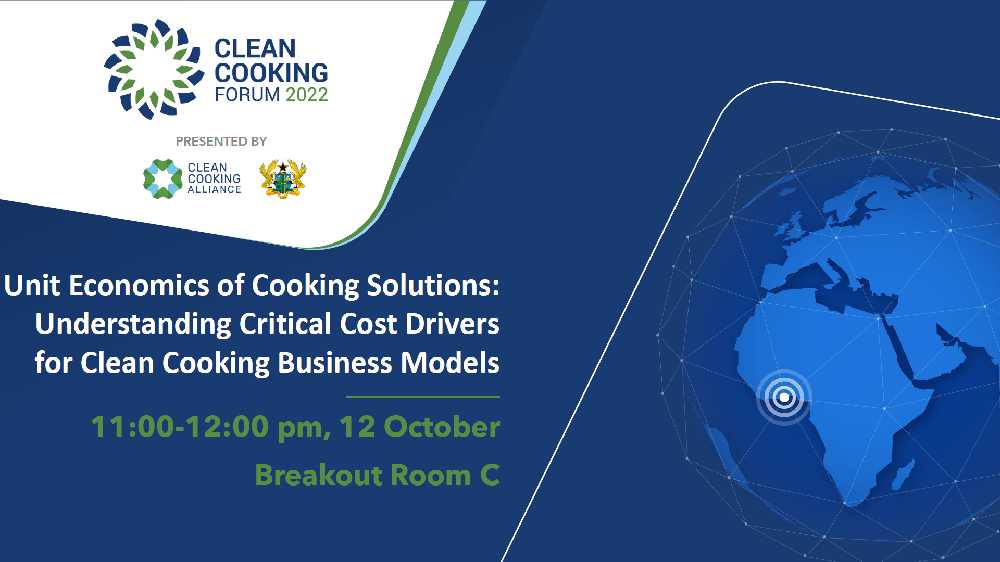
Results-based financing (RBF), particularly through the growth of climate finance and carbon credits, was identified as one of the most promising opportunities of the upcoming decade. While exciting progress has been made to advance RBF for clean cooking in recent years, the value of clean cooking must be better articulated, transaction costs reduced, and participating actors supported for the sector to capitalize on this opportunity. Understanding clean cooking company revenues and costs for each unit of production, i.e., unit economics, is essential for RBF program developers as they determine demand and supply side subsidy levels. In turn, well-structured demand and supply side subsidies will enable existing providers to reach operational viability and commercial sustainability quicker. This improves the overall attractiveness of clean cooking markets for commercial investors and financial markets.
This session will present early findings from recent unit economics research and associated tools, focusing on insights into key drivers of company costs and profitability and recommendations on how best to sequence different capital stacks for each context and business model. This will be followed by a panel discussion reflecting on how the study and tool impact the panelists’ own work.
Browse the Forum program for further details.